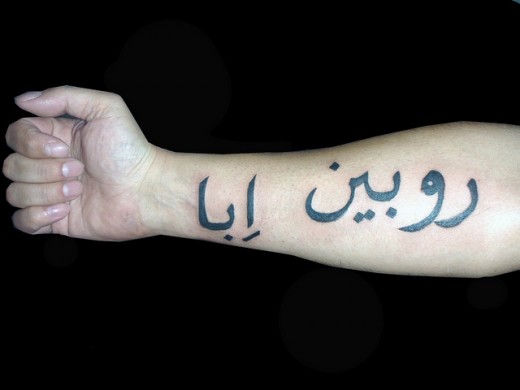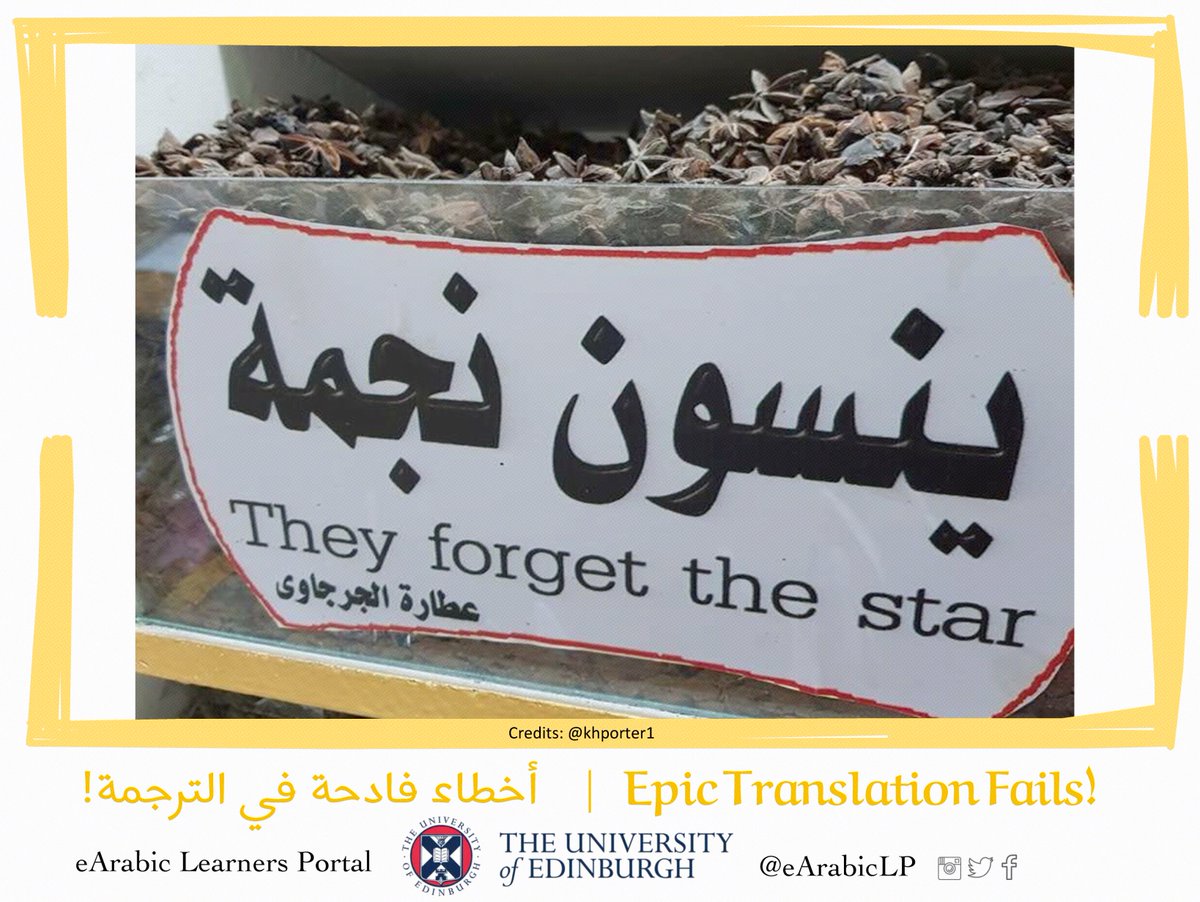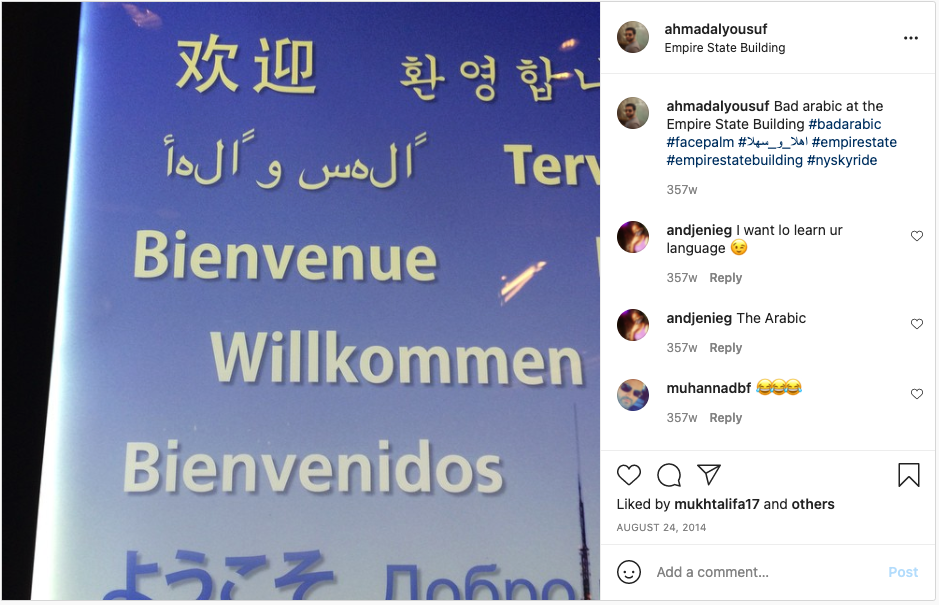Translation fails: 10 times when bad translations made us laugh out loud
At e-Arabization, we’ve seen our fair share of bad translations. Many of our customers come to us looking for a team to fix expensive mistakes made by unprofessional linguists in the past. But none of the errors we’ve witnessed come close to the linguistic lunacy, gaga grammar, and silly syntax that we’ve collected from around the internet this week.
Here’s a round-up of our 10 favourite English and Arabic translation fails from around the world and a quick breakdown of some of the most damaging (and common) errors that people make when they don’t translate their content professionally.
A killer shopfront

Our recommendation? Drop the ‘murder’, and always localize content when a literal translation doesn’t match the messaging you need to convey in the target language. Word-for-word translations rarely work for marketing content, and a shopfront is no exception. (Image credits: boredpanda.com)
Don’t you mean discounts?

The shopping experience of the future? It might be. Downloading clothes could be the next big thing! This is another case for the literal translation police. Just like English, some Arabic words have multiple meanings. A good linguist will pick the right word for the context required. Here, the context and the application of the words don’t match, resulting in a very odd shop window. (Image credits: pinterest.com)
‘Mayit Baul’

The caption says it all. (Image credits: Twitter)
That’s one translation we can’t fix

We don’t know what’s worse, the incorrect left-to-right translation or the fact that this ink is permanent. The words here have been flipped, but they’ve been flipped incorrectly. The general rule in Arabic is right-to-left, so the tattooist has flipped the English version, thinking it’s the same when translated (but it’s not!).
This body art is a semantic issue we often see with poor translations, and it’s very confusing for native Arabic speakers. (Image credits: Twitter)
Sorry, no inconvenience

The Arabic AND the English are wrong here. The Arabic letters are disconnected in the wrong place, so the entire meaning changes. In this case, instead of apologising for the inconvenience, the Arabic version apologizes for “NO inconvenience”. The English? Well, that’s just silly. (Image credits: habal.com)
It’s written in the stars (the confusion, that is)

Another literal translation. These are more common than you think and more damaging than many businesses realize. Mislabelling products and services can be incredibly damaging to sales because customers don’t immediately see what they are looking for. (Image credits: habal.com)
Please proofread your body art

The cardinal rule of Arabic is ensuring the letters join together correctly. Unlike English, you can’t spell Arabic words correctly without joining the letters together in their correct form. This unfortunate customer is stuck with an arm-load of errors!
(Image credits: albawaba.com)
Even the top spots in the world get it wrong

The Empire State Building is a world-famous attraction that welcomes over 4 million visitors every year. Imagine the impression they make on every single Arabic-speaking tourist who walks by this welcome sign on their way into the building. Kind of embarrassing, right?
The Arabic in this sign is in reverse, so it reads completely incorrectly. Arabic is a right-to-left language, but it’s easy to make this kind of mistake if your designer doesn’t read Arabic. (Image credits: instagram.com)
In a nutshell, it’s wrong

We’re not quite sure when or how these nuts transitioned from ‘mixed’ to ‘problem’, but we can’t imagine anyone is very keen on buying nuts with problems. We’ll chalk this linguistic error up to another instance where the Arabic word, ‘makhloot’, has been mistranslated for the context. (Image credits: translationreport.com)
Carrier bags, maybe?

Sometimes bad Arabic into English translations are hilarious, and this is one of those times.
‘Carrying’ a baby and a ‘carrier’ bag are two very different efforts (one is more challenging than the other), but in this case, the Arabic has been completely lost in translation! (Image credits: stepfeed.com)